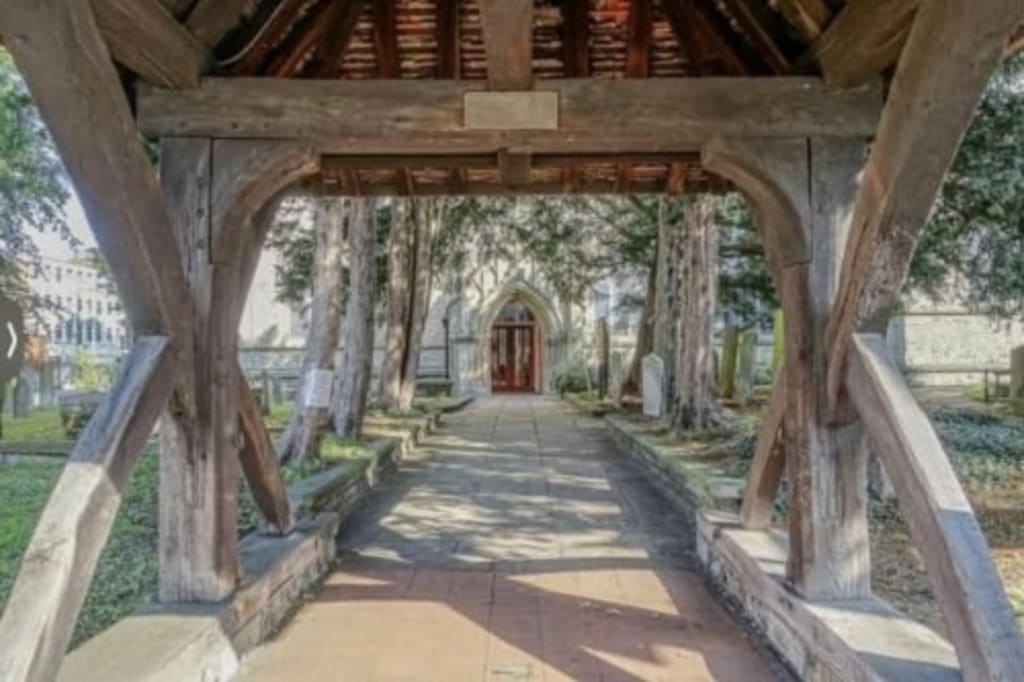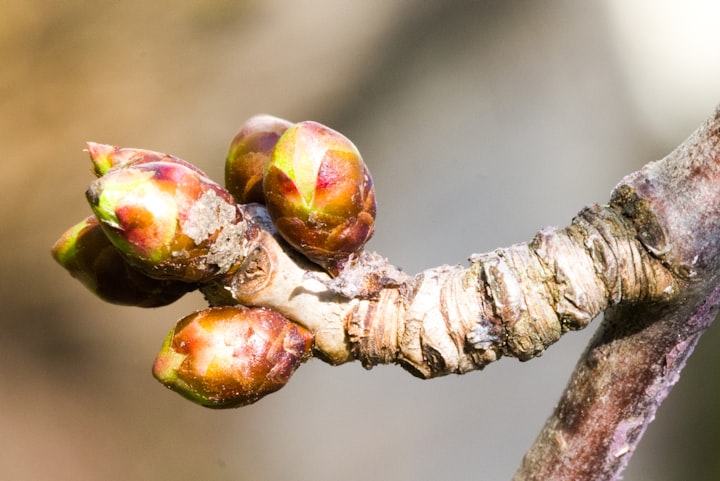Burial party at Beckenham Parish Church
Parson William Hogarth stood at the lychgate of the Beckenham parish church of Saint George, awaiting the burial party with some foreboding. Not least because of the drunken state of the mourners.

Parson William Hogarth stood under cover of the lychgate, awaiting the arrival of the body of dear departed brother Jeremiah Stodart with some foreboding. The family were known to the good people of the Kent hamlet of Beckenham as drunkards and ne’er-do-wells and the affair was as likely to end in an unholy debauch as it was to be a sober and somber interment. It did not help that the heavens had opened up, and the parson’s cassock was subjected to considerable muddy splashings from the wind blowing in the torrential rains.
He might have expected the burial party to be late. When it eventually arrived, the motley cortege consisted of assorted rural labourers, sporting their best hats and cleanest smocks, some clearly staggering from a morning spent imbibing their breakfast. Thankfully the body was borne upon a cart rather than being taken up on the shoulders of the brethren, who would undoubtedly have dropped the cadaver in their drunken state. A rude cloth covered the mortal remains of the deceased and dragged in the mud and horse shit. Hogarth was thankful that he would not have to handle the earthly remains of the deceased.
The funeral party halted at the gate and the soberly dressed but severely mudded person at the head of the procession looked up at the parson expectantly.
“Good day to you, father,” he said respectfully enough, although he slurred his words, and his eyes were none too focused. “We bring the body of our dear brethren to be buried in your churchyard yonder.” It was a statement of the obvious, for why else would they have been there at this time and with a corpse upon a cart.
“In nomine Patris et Filii et Spiritus Sancti,” incanted the parson, studiously avoiding anything approximating conversation with the somewhat dubious character presented before him. He nodded to a patch of earth in the burial ground that had been excavated for the purpose. It was located beyond, in an isolated border of the churchyard, furthest away from the church door.
A pair of ragged, bearded, rough looking characters from the party stepped forward to the cart, one at the head and the other at the feet of the body, and proceeded to grasp the opposite ends of the corpse, their noses turned away significantly. As they grasped the limbs a cry rang out from beneath the cloths.
“Belay!... belay!”
As the words sang out among the party, so the winding cloth blew out from what must have been the mouth of the late brethren.
“Belay I say! What be you doing as I try to sleep off a hangover?”
A gasp rang out from the cloistered congregation, and everyone took a step back.” Not one or two crossed themselves and turned away from the ungodly sight of the untimely reanimation of the dead person upon the cart.
“What’s this? What’s this?” asked the parson, not unreasonably.
“Well, by the gods,” said the leader of the funeral party, blaspheming without shame. “What manner of bedevilment is this?” he asked.
“Apothecary!” he shouted, as he turned to another in the party. “Did you not certify the death of our brother? Did you not confirm him in his departure from this mortal realm?”
“Er.. er… er…” extemporised the other man. “I confess I am as surprised as you at this unexpected expostulation from our brother in requiem aeternam.”
As the erstwhile corpse sat up abruptly upon his cart, so some in the party sank to their knees and, crossing themselves, began to recite, none too accurately, the pater noster.
“Get up! Get up you idiots!” expostulated the corpse. “This is not the first time this damn fool apothecary has pronounced me deceased. I am good for twenty years yet at least,” he said. “And will outlive that fooling herb doctor, no doubt!”
With this, he vaulted off his corpse cart and stood, unashamedly naked, raising his arms above his head and standing with legs akimbo, displaying to all who might not cast down their eyes in shame, the vitality of his manhood and virility.
The boy at the end of the procession held his hand up to his face to stifle a guffaw at the sight of the meat and two veg displayed for all to see in the consecrated grounds of the Beckenham parish church of Saint George.
“Lord, have mercy upon us,” said the parson, with something of resignation. Then, remembering the enormity of events… “Thanks be to God for the deliverance of this poor sinner amongst us!”
* * * * *
If you enjoyed this tale, you might like to read some more short stories from the author:
About the Creator
Raymond G. Taylor
Author based in Kent, England. A writer of fictional short stories in a wide range of genres, he has been a non-fiction writer since the 1980s. Non-fiction subjects include art, history, technology, business, law, and the human condition.






Comments (3)
Saints preserve us (in pickled brine, if you don't mind)!
Wow, what a story!
Well goodness. Not only is this a delight to read it's also a pitch-perfect rendering of the times. Thank you for choosing this one to share.